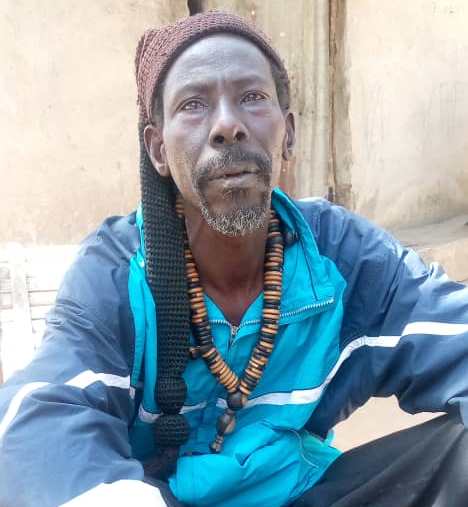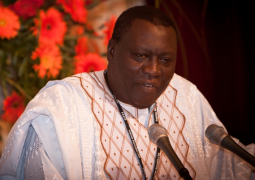
The man, name (withheld), who was well known for inflicting GBV against his wife frequently, said he has reformed.
He was trained through the Nafa Programme component of The Gambia Social Safety Net Project (a US$ 31 million project) which is jointly funded by the World Bank and Government of The Gambia.
“I used to beat my wife every few days but the project taught me how to take care and support my family, my wife and how to protect my children,” he revealed.
“The project transformed me to become a better husband. Our neighbours used to separate me and my wife almost every two days but after undergoing the SBCC training I have stopped beating my wife.”
“I have forbidden beating and insulting now,” he said, noting that whenever his wife is busy sweeping their compound he would be helping her in bathing the children.
“My wife has gone to sell at the market for less than three hours and I am already missing her which only peace can do,” he admitted, saying they now live in peace and harmony.
He pointed out that men have roles to play in contributing to peaceful and loving homes and therefore urged both beneficiaries and non-beneficiaries of the SSNP (Nafa Programme) to know that a happy home is men’s responsibility.
“Every father should ensure your children see you playing and cracking jokes with their mother as well as supporting her,” he added while assuring that he will continue to live in peace and harmony with his wife even when the project phases out.
“I want the peace and oneness I am enjoying with my wife to spread across the country,” he further said, noting that no man can build a home without a wife.
Ousman Dem, programme manager for SBCC for the NaNA, said each beneficiary is entitled to D3000 every two months for nine cycles which means every beneficiary will receive D27,000 for the piloted phase of the project (18 months).
“We do not only give them money because money alone cannot change behaviours,” he added, saying, the money is accompanied with intensive Social and Behavioural Change activities.
Mr. Dem said at the end of the project, they want to ensure beneficiaries move from their current status to a much desired status than they are in currently.
“We hope that towards the end of the project people found to be extremely poor would have been lifted from their poverty status,” he concluded.
The National Nutrition Agency (NaNA), Department of Social Welfare and Department of Community Development are implementing the Nafa Programme.
The project is on implementation in West Coast, Central River, North Bank and Upper River regions. It is targeting 15,606 extremely poor households. This equates to approximately 40 percent of the extreme poor households in The Gambia. For a start it is being piloted in Foni Bintang, Nainija District and Wuli West.
The Project Development Objective (PDO) is to improve the coordination of social assistance activities, provide temporary social assistance support to rural households in the wake of COVID-19, and increase inclusion of the extreme poor in the Nafa Programme.
‘The project will target approximately 15,606 extremely poor households in the 20 poorest districts in The Gambia. This equates to approximately 40 percent of the extreme poor households in The Gambia,’
The Nafa Programme is designed to promote continuity and harmonisation with other programmes by expanding an existing package of cash transfers with SBCC managed by NaNA to new districts and regions.
The selection was made using a Proxy-Means Test (PMT) and community validation in the 20 poorest districts of The Gambia.
The regular revenue provided to extreme poor households is aimed at both increasing short-term consumption of essential goods and services, and enabling longer-term investments in human and productive capital.
Tailored SBCC would provide information to beneficiaries and non-beneficiaries to encourage investments that can bolster human capital especially maternal and child health and nutrition, education, adolescence and family planning; parenting and gender-based violence; and productive capital especially savings, entrepreneurship and agriculture to break the inter-generational cycle of poverty.
Read Other Articles In Headlines




